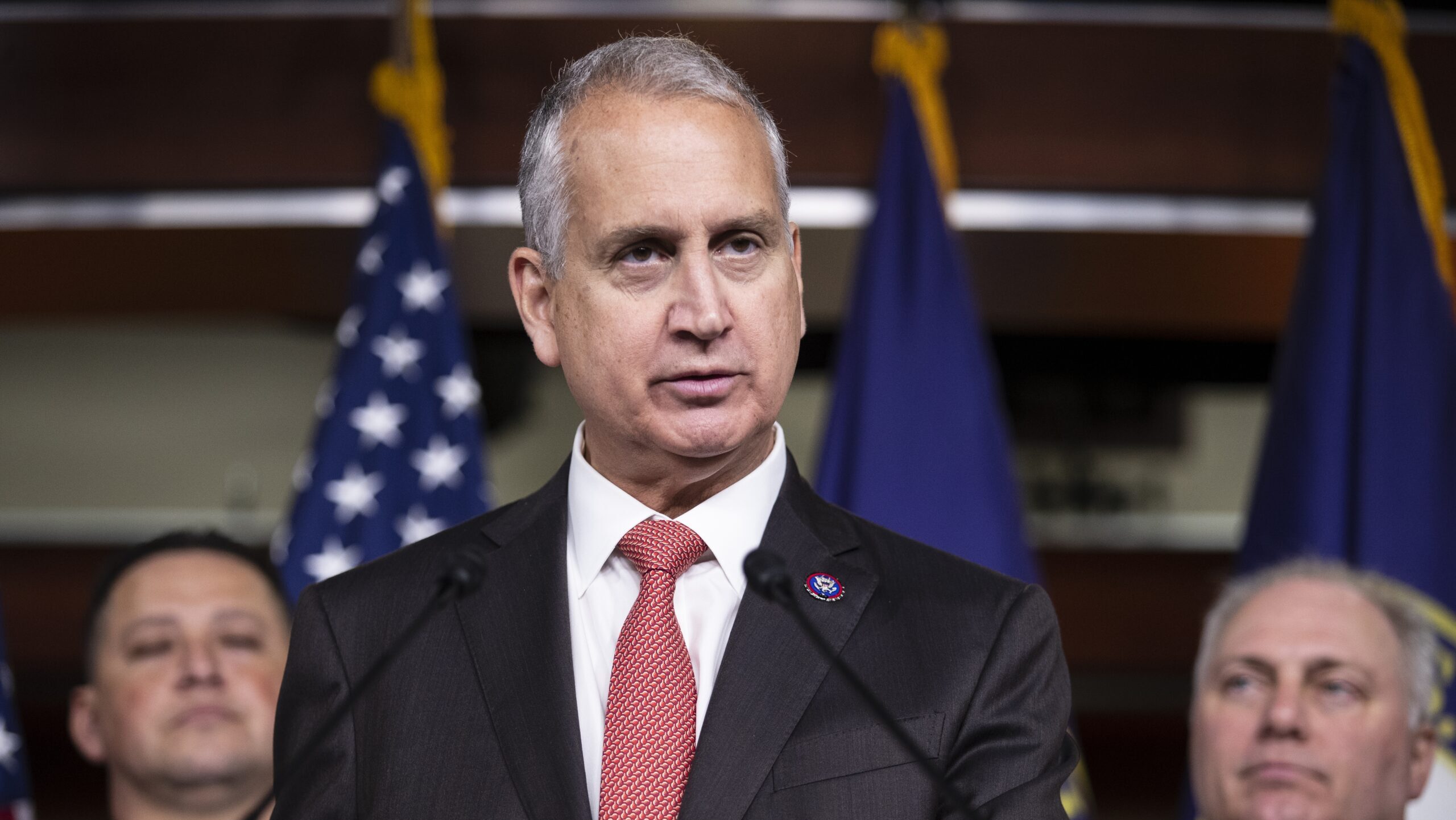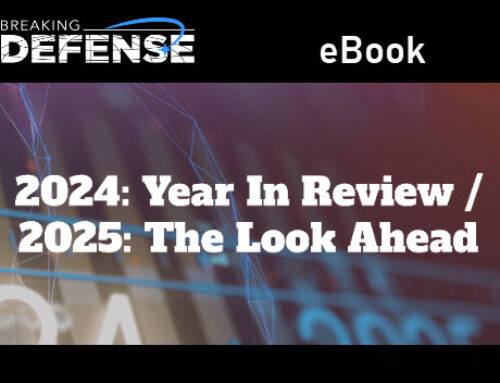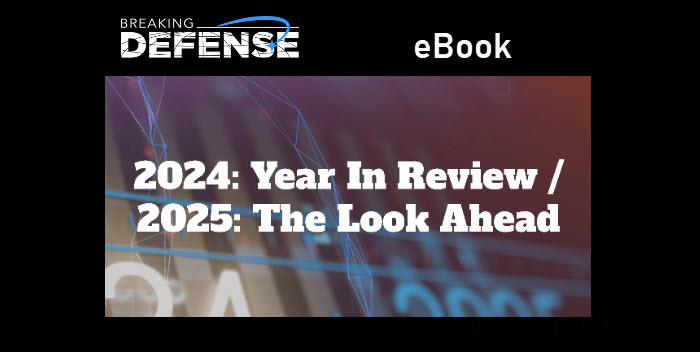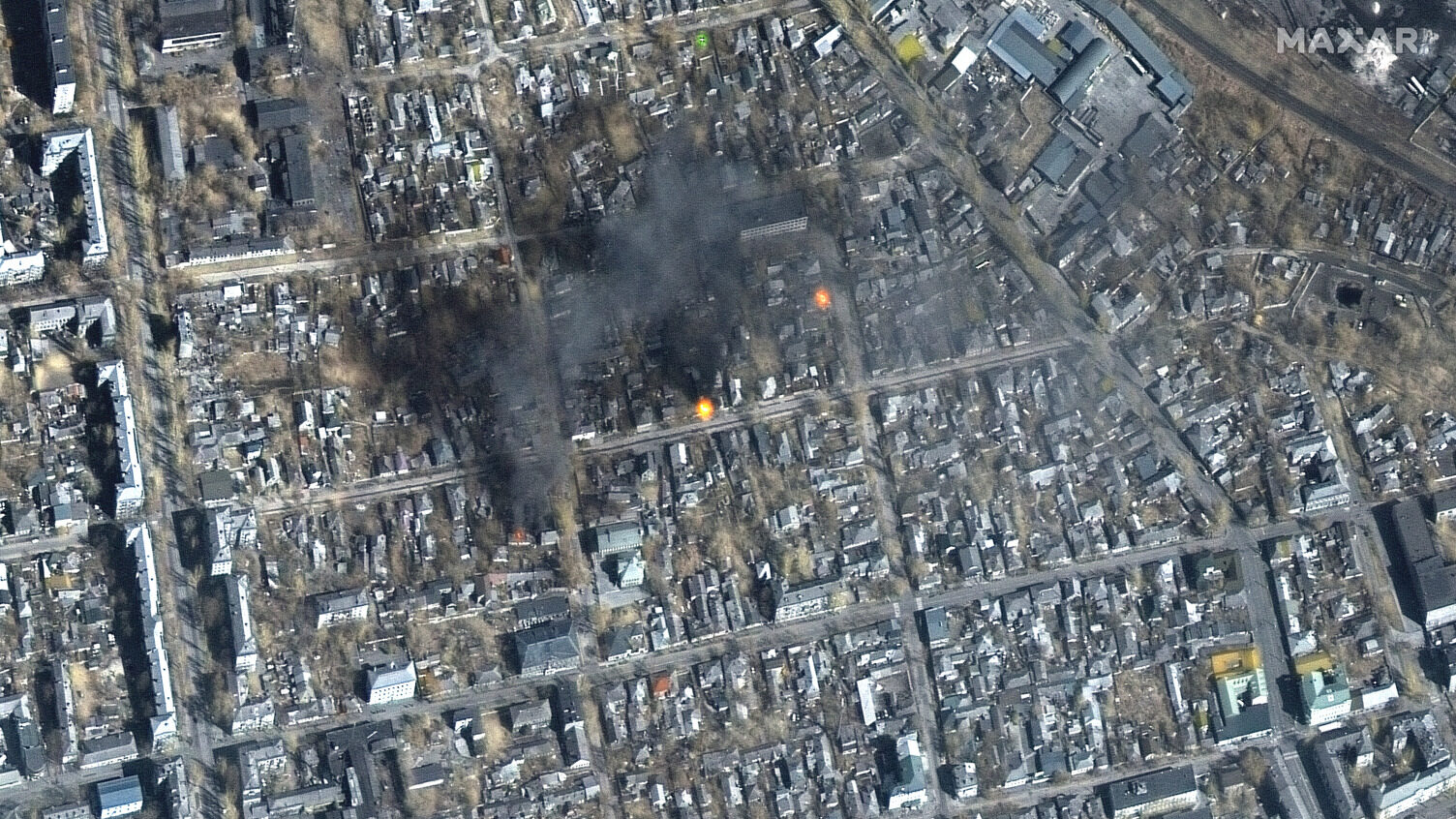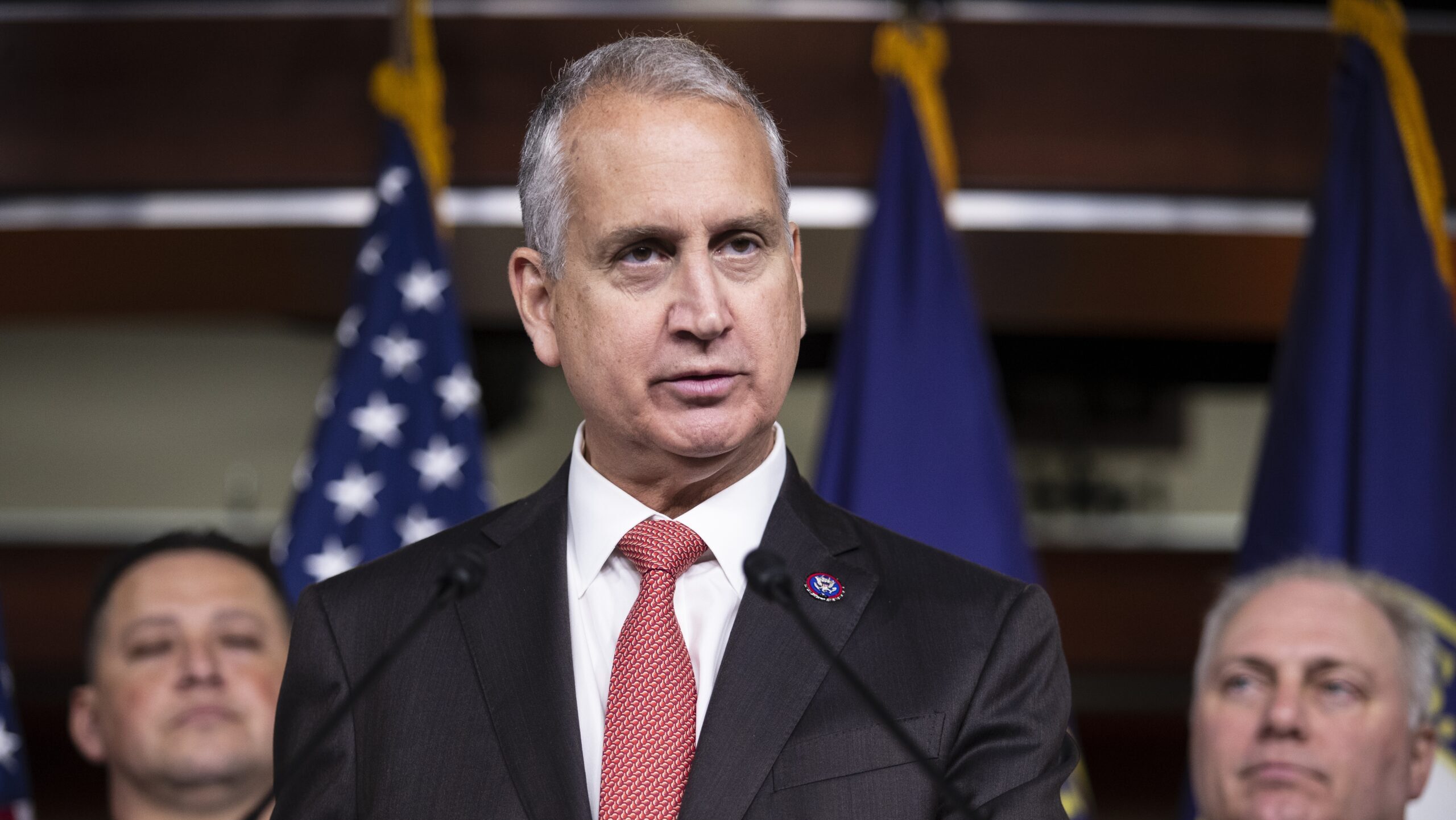
Representative Mario Diaz-Balart, a Republican from Florida, speaks during a news conference at the U.S. Capitol in Washington, D.C., U.S., on Tuesday, July 20, 2021. (Tom Brenner/Bloomberg via Getty Images)
WASHINGTON — On Wednesday Florida Rep. Mario Diaz-Balart was named the new vice chairman of the House appropriations committee, putting him in a key position to sort out how to both get the fiscal 2025 budget out of limbo and work out a major reconciliation package backed by President-elect Donald Trump.
Those are challenges, he admitted to Breaking Defense in an interview earlier in the week, that are going to require a lot of finessing.
“Our margins are so slim that it is going to be a very, very heavy lift,” the 11-term congressman said of the slight Republican advantage in the House, “and there are a number of people who have a history of voting against a bill, not because of what’s in it, but because of what potentially is not in it. And that’s a very difficult individual to satisfy, because there’s always something that’s not there that we want, right?
“And so, thin margins, a group of people that have the tendency to do that … I’m still optimistic that we’ll get it done, but I just don’t think it’s as easy as some think it is.”
However, the appropriator does hope to jumpstart FY25 negotiations ahead of the Continuing Resolution ending in mid-March, “I actually am going to be pushing hard to try to get it done before the March deadline.”
“There’s no reason why we have to wait to March,” he said. “And I’m hoping that there’s an agreement sooner [rather] than later on top line numbers so the appropriators can get to work, and as soon as we can get to work, we’ll get it done in, I think, pretty short order. But it’s not an easy task.”
Diaz-Balart, who is also the chair of the National Security, Department of State, and Related Programs Subcommittee, as well as a member of the defense subcommittee, spoke on a wide range of issues. Below are some highlights, lightly edited for length and clarity.
BREAKING DEFENSE: There’s a lot of chatter right now that defense could get a big plus-up through reconciliation. Sen. Roger Wicker, the Senate Armed Services chairman, has said he wants a $60 billion per year increase for FY25 and FY26. Is that something you support?
REP. MARIO DIAZ-BALART: How we could get that done, the process to get that done, is one thing. I think that we are grossly underfunding defense, and we’re doing so in a way that I think is putting our country and our future in jeopardy. And so I agree with Sen. Wicker that we have to do a lot more.
I wish that every member of Congress got some of the classified, in-depth briefings that we get on defense, on appropriations and others. We do have the most powerful military, but I think we have a serious, serious, serious threat in communist China that is a mid- and long-term existential threat. I think we are dramatically underfunding defense.
Now, is the number $60 billion, or is the process of doing reconciliation or [funding it] another way, the right way? That’s subject to debate. But I do think that I agree with Sen. Wicker that we are dramatically and dangerously underfunding defense.
And you think that’s something that’s possible, to get a big plus-up done?
I think we need to figure out a way to it, because if you fall behind in defense, you don’t catch up. Not when you have a Chinese dictatorship that is investing — they invest money, and they also steal technology, and they’re continuing to do it. Their plans are very clear. They want to be the number one military power, the number one influence in the world, and once you fall behind, catching up is nearly, if not totally, impossible. So the sooner the better. And we definitely are underfunding defense, and I will tell you dramatically underfunding defense.
The Army has requested a change in how it gets its appropriations, looking for pots of money instead of going line by line. We saw a similar idea floated by Wicker, in a recent reform plan. As an appropriator, what is your sense of the willingness members have to allow that to happen?
I love that concept. I really do. Now, the flip side is, [DoD] can’t even pass their routine financial audit. And that’s a little worrisome, right? So I like the concept, but — BUT — because you’re dealing with so much money, and it’s the biggest bureaucracy in the world, how do you do that and still make sure that we don’t have, you know, million dollar hammers or pick your example de jour. Again, I like the concept, but there have to be some very serious financial guidelines to make sure that money is [going to] the right place.
What do those guidelines or controls look like?
One of my frustrations is that, you know, we go from trying to get the appropriation bills and then — supplemental, and then another supplemental, and then a CR, and then another CR, then another supplemental — that I’ve had no time to do the following. I’d like to do, in essence, performance-based budgeting. I did that in the state level … I’d like to be able to not just know how much money we’re putting in, but exactly what we’re getting out of it. In some areas, we can do that. … And I don’t know if it’s totally possible to do with defense, but that’s something that I want to do with my [subcommittee].
I agree with that [flexibility concept], but it’s hard to argue when, you know, you don’t pass your audits. How the hell do you want us to trust you with more flexibility? And so that’s a bit of a challenge. That’s a bit of a challenge — coming from somebody who, again, believes that we need to put a lot more money [into defense].
Have you talked with the DOGE team at all yet?
I have not, but we need to. We need to. I’m actually really optimistic about what the DOGE can do. You know, just more eyes with a different perspective. These are folks who are highly successful. As of now, obviously they’ve been [set up] but there hasn’t been a deep dive yet, and it requires a very deep dive.
There’s been a lot of back and forth over the years about where security assistance funds should live. Both State and the Pentagon have parts of that, and both sides have argued over the years that they should be the sole controller. State falls firmly under your purview, but you’re also on the defense subcommittee, so where do you come down?
Look, I think that’s one of those areas that we that we need to spend some time looking at, [to see] if we can be more efficient or more effective. Because I have no — these turf battles, I don’t play that game. If it makes sense for it to be in defense, it should be in defense. If it makes sense to be in someplace else, if it makes sense to share it, [fine].
So I don’t have a real fixed feeling on that, but it’s one that we need to look at to see if we can get efficiencies. And what makes sense is what I would support.
Is this the kind of thing you want to see DOGE take a look at and weigh in on?
The issue is that, these are issues that have to be looked at in a real detailed fashion. It can’t just be the concept, you know, it’s got to be [about] how does it actually work on the ground. And so I don’t have a problem with [DOGE] looking at it, I actually think that they should be looking at all of this and coming up with the recommendations. But when you’re dealing with something that is, you know, literally putting people at risk, it’s got to be done in a real, real detailed fashion. And so I welcome DOGE, but I also think that it’s going to require some very detailed analysis.
Lebanon has a new government, one with the backing of Western nations that hope it can stabilize that country. Do you want to see more money flowed to the Lebanese Armed Forces to help support that?
The Lebanese military has been one of the few stable things there. But having said that, I am also very concerned of the influence that Hezbollah has in the country writ large and potentially even in the military.
And so to your question, do I support it? Maybe. Maybe, but with the very strong caveat that it just can’t be a blank check. It’s got to be very, very, very strongly limited to make sure it doesn’t fall in the wrong hands, or it’s not used for things that we don’t want to be used for. And there are some good relationships there, right? But, even within the military, there are challenges. Lebanon is a challenge.


